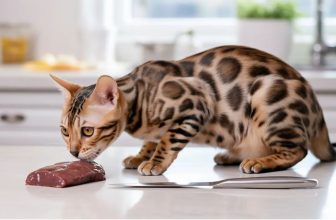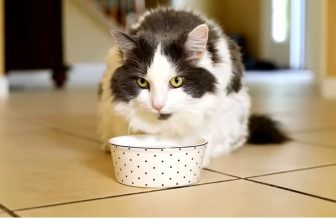Is Duck Good for Cats? Discover Its Tasty Benefits
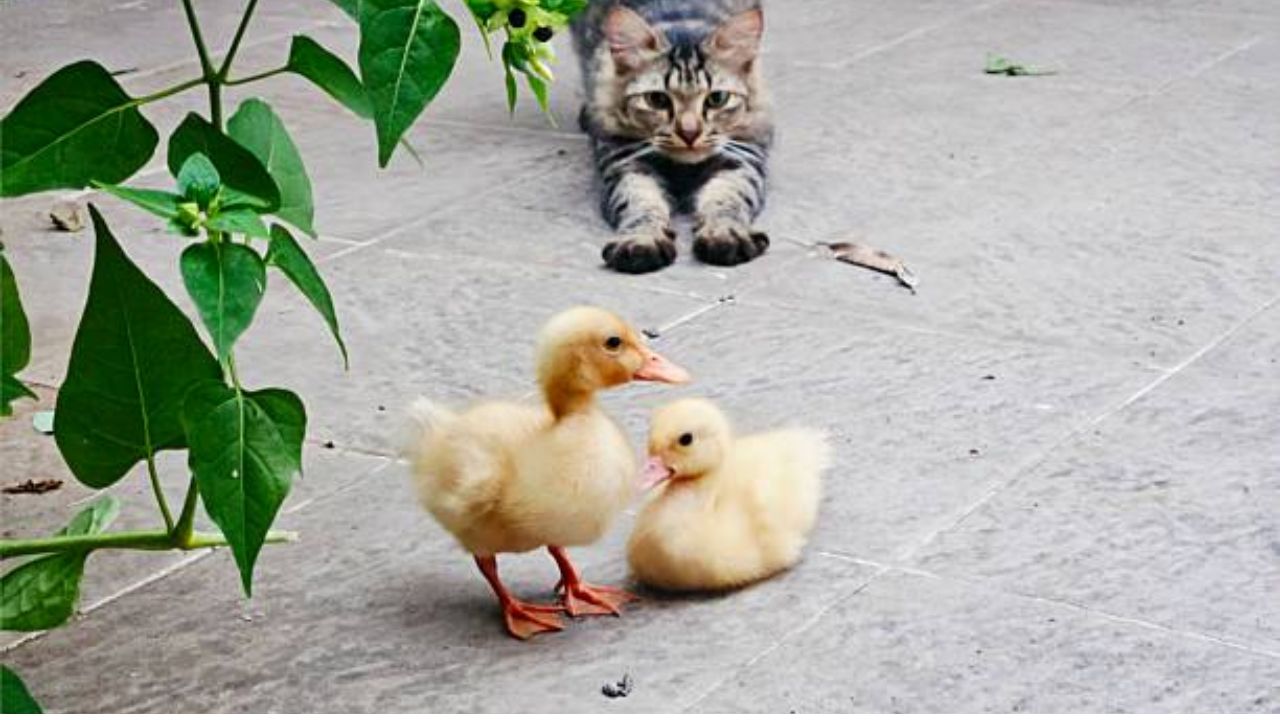
Is Duck Good for Cats? Discover the Surprising Truth Behind This Tasty Protein
Have you ever wondered—is duck good for cats? You’re not alone. As a devoted pet parent, you’re always on the lookout for ways to boost your cat’s diet with healthy, tasty options. While chicken and fish get all the spotlight, duck is quickly rising as a favorite among feline foodies.
But does it live up to the hype?
In this article, we break down the real benefits of duck for cats—like its rich protein content and essential nutrients—and explore any risks you should be aware of. Whether you’re considering switching proteins or just curious, this guide will help you decide if duck deserves a spot in your cat’s bowl.
Nutritional Benefits
Duck meat is often seen as a tasty option for cats. It’s rich in protein and has a different flavor from chicken or beef. Cats can benefit from the unique nutrients in duck. It’s important to know what makes duck a good choice for your feline friend.
High Protein Content
Duck is packed with high-quality protein. Protein is essential for cats as they need it for growth and repair. Duck provides the amino acids that cats need. This helps keep their muscles strong and healthy.
Rich In Vitamins
Duck contains many important vitamins that are good for cats. It has vitamin B and vitamin A. These vitamins help with energy and vision. A diet with duck can support a cat’s overall health.
Healthy Fats
Duck offers healthy fats that are crucial for cats. These fats can improve the skin and coat condition. Cats with shiny coats often have a balanced diet. Duck can contribute to that balance.
Balanced Minerals
| Mineral | Benefit |
|---|---|
| Iron | Helps in forming healthy blood cells |
| Phosphorus | Supports strong bones and teeth |
| Zinc | Aids in immune system function |
Unique Taste
Many cats enjoy the unique taste of duck. It’s different from the usual chicken or beef flavors. This can make meals exciting for them. A happy cat often has a varied diet.
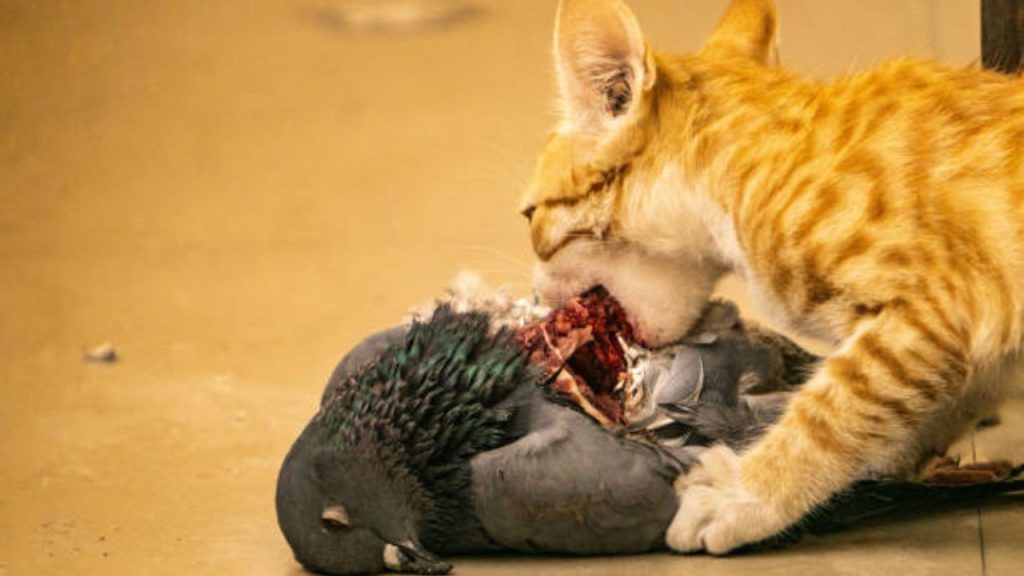
Potential Risks
Many pet owners wonder if duck is a safe option for cats. While cats enjoy meat, it’s important to know if duck can be part of their diet. Understanding the potential risks helps in making informed choices for your feline friend.
Allergic Reactions
Cats can have food allergies just like humans. Duck might cause allergic reactions in some cats. Symptoms include itchy skin, vomiting, or diarrhea. Observing your cat after feeding them duck is crucial. Any unusual behavior should be noted.
High Fat Content
Duck meat is high in fat. This can be a problem for cats. Overconsumption might lead to obesity. Obesity in cats can cause health issues like diabetes or heart disease. Moderation is key when serving duck to your pet.
Bone Hazards
Duck bones can pose a danger to cats. Bones might splinter and cause injuries. These injuries can be internal and painful. Always remove bones before offering duck to your cat.
Digestive Issues
Some cats might find duck hard to digest. Digestive issues may lead to stomach upset or gas. If your cat has a sensitive stomach, it’s wise to be cautious. Watching for changes in bathroom habits can be helpful.
Presence Of Additives
Store-bought duck often contains additives or preservatives. These can be harmful to cats. Always check the labels for harmful ingredients. Opting for fresh, plain duck is safer for your feline friend.
How To Prepare Duck
Cats are curious creatures with unique dietary needs. While commercial cat food is convenient, some pet owners explore alternative protein sources. Duck is a lean meat that’s rich in nutrients, making it an intriguing option for feline diets. Preparing duck for cats involves careful consideration to ensure it’s healthy and palatable. Understanding how to cook and season duck can make it a delightful treat for your furry friend.
Cooking Methods
Preparing duck for cats requires attention to detail. First, choose fresh, high-quality duck meat. The cooking process is crucial. Ensuring the meat is cooked thoroughly is important for your cat’s safety. Here are some common methods to prepare duck:
- Boiling: This method is simple and effective. Boiling duck helps retain moisture and tenderness.
- Steaming: Steaming preserves nutrients and flavors. It’s a gentle cooking method that cats love.
- Baking: Baking is a convenient way to cook duck. It ensures even cooking and a delicious texture.
Each method has its benefits. Boiling and steaming maintain moisture. Baking enhances flavor without adding fat. Choose the method that fits your cat’s preference. Remember, cooked duck should be plain without bones to avoid choking hazards.
Seasoning Tips
Seasoning duck for cats needs minimal effort. Cats have sensitive palates, so avoid strong flavors. Here are some tips:
- Herbs: Use mild herbs like parsley or basil. They add aroma without overpowering the meat.
- Plain: Keeping the duck plain is often best. Cats appreciate the natural taste of duck.
- No Salt: Salt is unnecessary and unhealthy for cats. Avoid adding salt to duck.
Seasoning should enhance the duck, not mask its flavor. Simple herbs can make the dish more appealing. Always ensure the seasonings are safe for cats. A little effort in seasoning goes a long way in making duck a favorite treat for your pet.
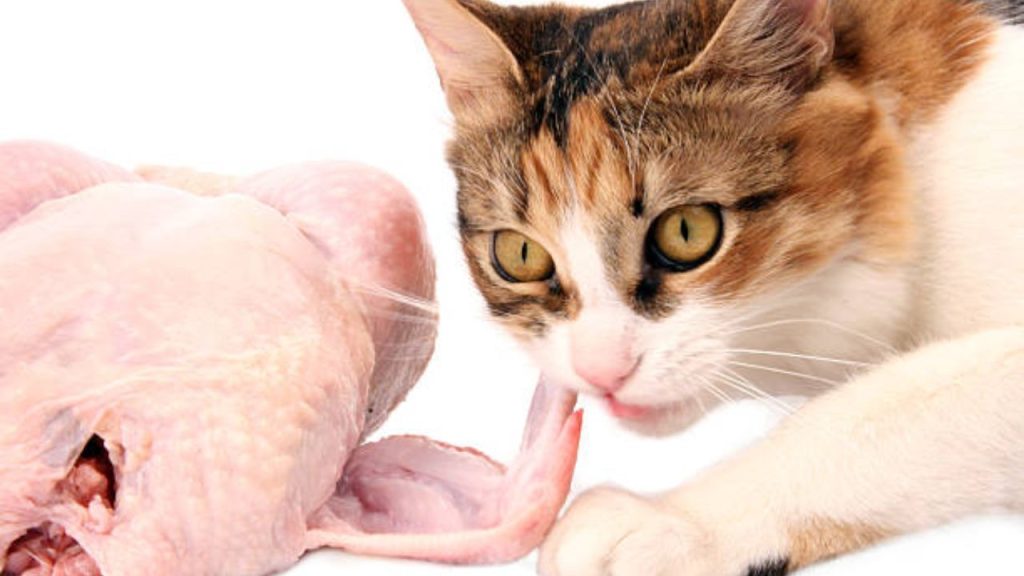
Portion Control
Duck can be a tasty treat for cats. It’s rich in protein and provides essential nutrients. But feeding ducks to cats needs careful thought. Cats are obligate carnivores. They need meat to thrive. But not all meats suit them. Duck can be a healthy choice. But one must consider portion size and preparation. Let’s explore how duck fits into a cat’s diet.
${example}
Feeding too much duck can be harmful. Cats need balanced meals. Duck should be an occasional treat. Not a regular meal. Small portions are best. It prevents weight gain and digestive issues.
Duck has more fat than chicken. So, limit the quantity. A small piece, a few times a week, is enough. Always consult a vet before making changes to your cat’s diet. They can give the best advice.
Alternative Protein Sources
Cats need protein to stay healthy. Their bodies are built for it. Duck is becoming popular as a protein source for cats. It’s rich in nutrients and can be a good option for your feline friend. But is duck safe for cats? Let’s explore this alternative protein source.
Benefits Of Duck For Cats
Duck meat is rich in vitamins and minerals. It contains high levels of zinc, iron, and vitamin B. These nutrients are essential for a cat’s health. They support the immune system and help keep skin and coat healthy.
Another benefit is the high protein content. Duck meat provides the amino acids that cats need. This helps with muscle growth and repair. Duck can be a tasty addition to your cat’s diet.
Possible Risks
While duck is nutritious, there are risks associated with it. Some cats may be allergic to duck. Symptoms include itching, vomiting, or diarrhea. It’s important to watch for any reactions.
Duck is also higher in fat compared to other meats. Excessive fat intake can contribute to weight gain. Moderation is key to avoiding health issues.
How To Introduce Duck To Your Cat’s Diet
Start with small portions. Mix duck with your cat’s regular food. Observe how your cat reacts to the new protein source.
Gradually increase the amount if no adverse reactions occur. Consult your veterinarian for advice tailored to your cat’s health needs.
Comparing Duck With Other Protein Sources
| Protein Source | Benefits | Risks |
|---|---|---|
| Duck | High in nutrients and protein | Possible allergies, high in fat |
| Chicken | Low-fat, easily digestible | Common allergies |
| Fish | Rich in omega-3 fatty acids | Mercury content |
Cats With Allergies
Cats often develop allergies just like humans. Food allergies can be common in cats. Many cat owners search for new protein sources to alleviate their pet’s discomfort. Duck is one such alternative. Understanding if a duck is suitable for cats with allergies is important. It might be a healthier choice for your feline friend.
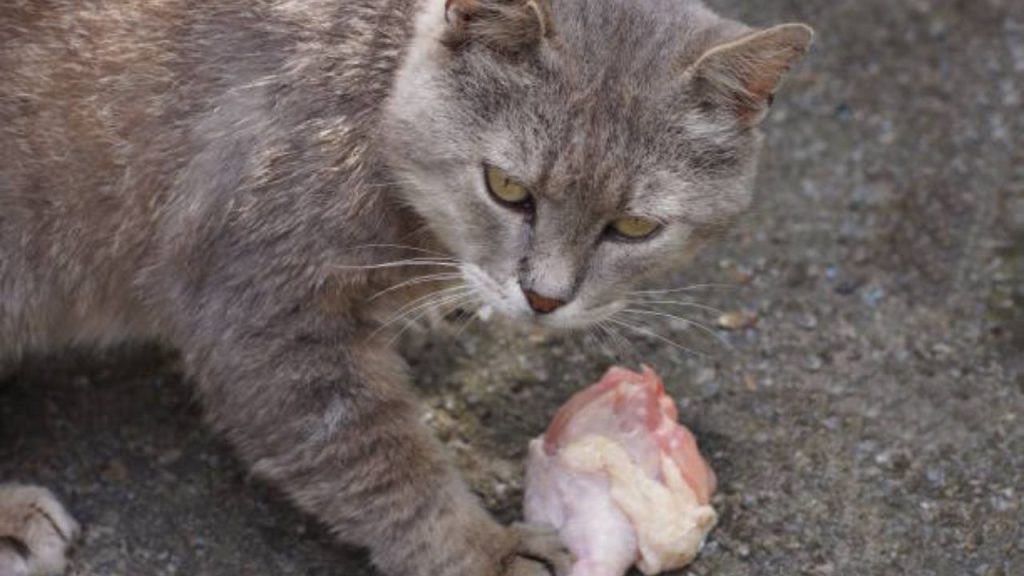
Benefits Of Duck For Cats
Duck is a novel protein for many cats. It is less likely to cause allergic reactions. This makes it a good choice for cats with food sensitivities. Duck is also rich in essential nutrients. It contains high levels of vitamin B, zinc, and iron. These nutrients support a cat’s overall health.
Signs Of Allergies In Cats
Recognizing allergy symptoms is crucial. Itchy skin, frequent scratching, and digestive issues are common signs. Cats may also experience ear infections or hair loss. If your cat shows these symptoms, consult a vet. They can help determine if food allergies are the cause.
Testing Duck As A Food Option
Introducing a duck should be gradual. Start by offering small amounts. Observe your cat for any adverse reactions. Look for improvements in their skin and digestion. If positive changes occur, duck may be suitable. Always seek veterinary advice before changing a cat’s diet.
Comparing Duck With Other Proteins
| Protein Source | Common Allergies | Nutritional Benefits |
|---|---|---|
| Chicken | High | Rich in protein |
| Fish | Moderate | Omega-3 fatty acids |
| Duck | Low | Vitamin B, zinc, and iron |
Veterinary Advice
Many pet owners wonder about new flavors for their feline friends. Duck meat is an option that might seem unusual. But is it safe for cats? Understanding the nutritional value and potential benefits of duck can help. We will explore what experts say about ducks as part of a cat’s diet.
Nutrition In Duck Meat
Duck meat is rich in protein, which is essential for cats. It also contains vitamins such as B6 and B12. These vitamins support a cat’s overall health. Duck also has omega-3 fatty acids. These are good for a cat’s skin and coat.
Potential Benefits
Some cats have food allergies. Duck can be an alternative protein source. It may reduce allergic reactions. Duck is also flavorful, which can entice picky eaters. Offering duck in moderation can diversify a cat’s diet.
Risks And Considerations
Feeding too much duck can lead to weight gain. It is important to keep portions small. Duck is higher in fat compared to other meats. Always consult a vet before changing a cat’s diet. This ensures the pet’s health and safety.
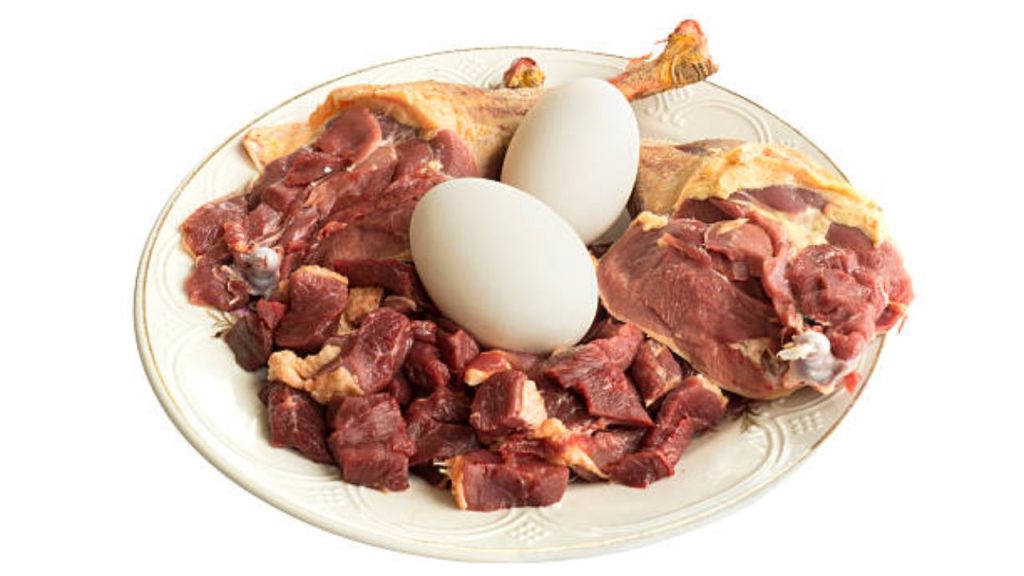
How To Introduce a Duck
Start by offering small amounts of duck. Mix it with the cat’s regular food. Observe for any digestive issues. If there are no problems, duck can be a regular treat. Always make sure the duck is cooked properly. Raw duck can pose health risks to cats.
Frequently Asked Questions: Is Duck Good for Cats
Is Duck Meat Safe For Cats To Eat?
Yes, duck meat is safe for cats. It’s nutritious and provides essential proteins.
Can Ducks Cause Allergies In Cats?
Yes, some cats may be allergic to duck. Always introduce new foods gradually.
How Often Should Cats Eat Duck?
Cats can have duck occasionally. It’s best as a treat or supplement to their diet.
Does Duck Provide Nutritional Benefits For Cats?
Duck is rich in protein and essential fatty acids. Good for a cat’s health.
Can Kittens Eat Duck Meat?
Yes, but in moderation. Ensure it’s cooked well and cut into small pieces.
Conclusion
Duck can be a tasty treat for cats. It offers high protein and essential nutrients. Always ensure the duck is cooked properly and free from bones. Check for any allergic reactions when introducing new foods. Variety in a cat’s diet can improve their overall health.
Consult your vet before making any big dietary changes. They can guide you on portion sizes and frequency. Remember, every cat is unique. What works for one might not work for another. With care and attention, duck can be a healthy addition to your cat’s meals.



